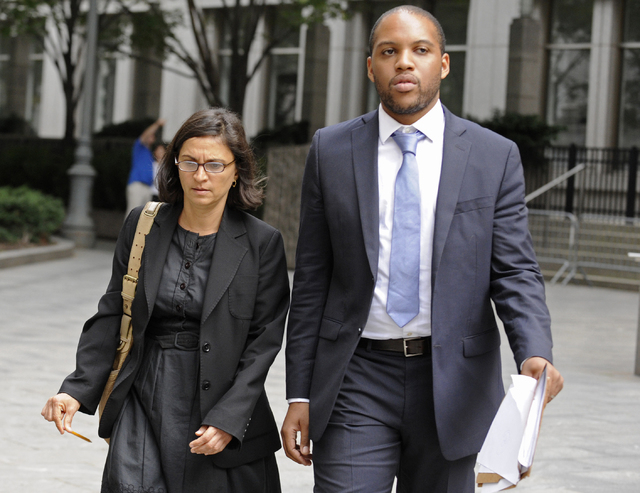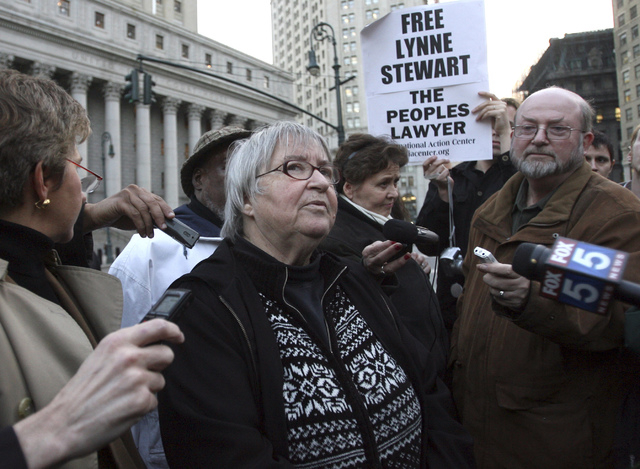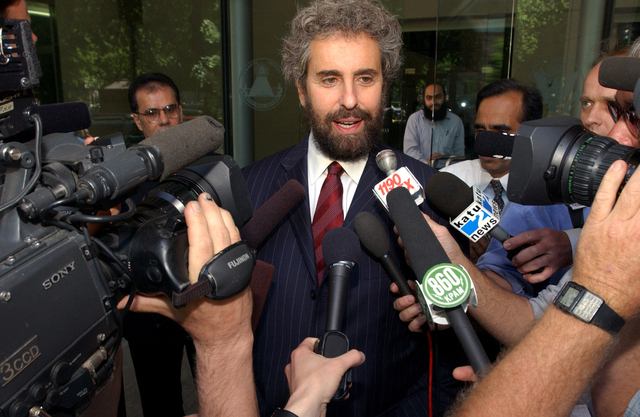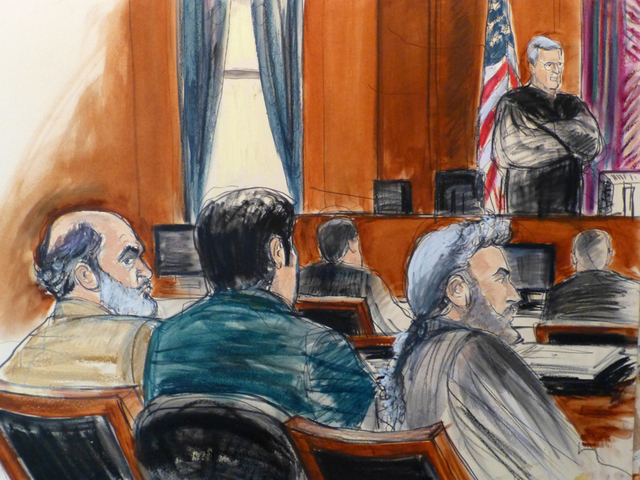Terrorist suspects’ defense attorneys under attack
NEW YORK — People in the courthouse sometimes shun them. Friends, and even family, sometimes question their principles.
For the small band of lawyers who defend the most despised terrorism suspects — the ones accused of hatching al-Qaida plots to kill Americans around the world — this is the highly uncomfortable life they chose.
They are the true believers in the legal principle that everybody deserves representation in court, even if it means they get the same scorn and sometimes the same scrutiny as the people they represent.
Just ask Anthony Ricco, who was among a handful of respected defense lawyers summoned to the federal courthouse in Manhattan after the Sept. 11 attacks because they might be needed for potential suspects. He recalled his mother telling him, in a temporary moment of outrage, “If you go down there to represent them, I will never speak to you again.”
Such hazards are becoming more common for the few dozen defense attorneys who specialize in terrorism cases as the Justice Department pushes the use of civilian courts — most often Manhattan federal court — to bring foreign terrorism suspects to justice.
In two of the most recent cases, a Manhattan jury convicted Osama bin Laden’s son-in-law in March of conspiring to kill Americans, while an Egyptian imam is facing charges at an ongoing trial that he tried to start an al-Qaida training camp in Oregon.
The defense attorneys assigned to represent penniless terror defendants under the Criminal Justice Act are on the low end of the pay scale — $126 an hour. Some lawyers hired by rich white-collar defendants pull in more than $1,000 an hour.
“It’s a thankless but important job,” said Karen J. Greenberg, director of the Center on National Security at Fordham Law, adding that such lawyers “have dedicated their lives to people who otherwise might not get a fair trial.”
Sabrina Shroff, an assistant federal defender, won a rare, surprising victory in court recently when the government offered a plea deal that may free a client who the government once claimed planned to set up a U.S.-based cell of terrorists capable of striking worldwide.
She said representing every client, regardless of the crime, is the essence of her job, comparing the professional detachment to that of a physician.
“You wheel somebody in. He needs an operation. You do the operation,” Shroff said. “The doctor doesn’t say: ‘Let me see what his views are on certain matters.’”
Stanley Cohen represented bin Laden’s son-in-law and cleric, Sulaiman Abu Ghaith, who was convicted of terrorism charges at a trial where jurors watched him on videos after 9/11 warning Americans that the “storm of airplanes” would not cease.
Cohen pleaded guilty after the trial to tax charges he believes were meant to punish him for his fierce advocacy of unpopular causes — a claim the government denies.
“You get stigmatized. Folks avoid you. You get ostracized,” Cohen said. “Our job is to be friction on the machine. The system is racist and classist and ugly. It is designed to silence those who speak out, and it feeds upon people of color and the poor.”
Cohen has faced the worst backlash, which he says has included hundreds of death threats and posters from time to time near the courthouse describing him as a self-hating Jew who hates America and is a lawyer for terrorists. He blames it on his statements about Israel, including speeches around the world.
Lynne Stewart, who represented a blind Egyptian sheik who was convicted and sentenced to life in prison for terrorism, said she considered herself “the last person standing before the goal line, and the government had to get past me.”
After that trial, she was convicted on terrorism charges brought months after 9/11 for letting the sheik communicate with followers and lost her license to practice law. She received compassionate release from prison in December to fight cancer after serving four years of a 10-year sentence.
Stewart’s conviction “had the unintended consequence of having a chilling effect on the defense bar,” Ricco said. “No lawyer wants to take a case that will ruin your career.”
But Ricco calls defending such difficult clients “the highest calling” for defense lawyers and still finds it inspiring.
“What’s a kid who grew up in Harlem doing in a case titled the United States v. Osama bin Laden? Who would have thought it?”





















